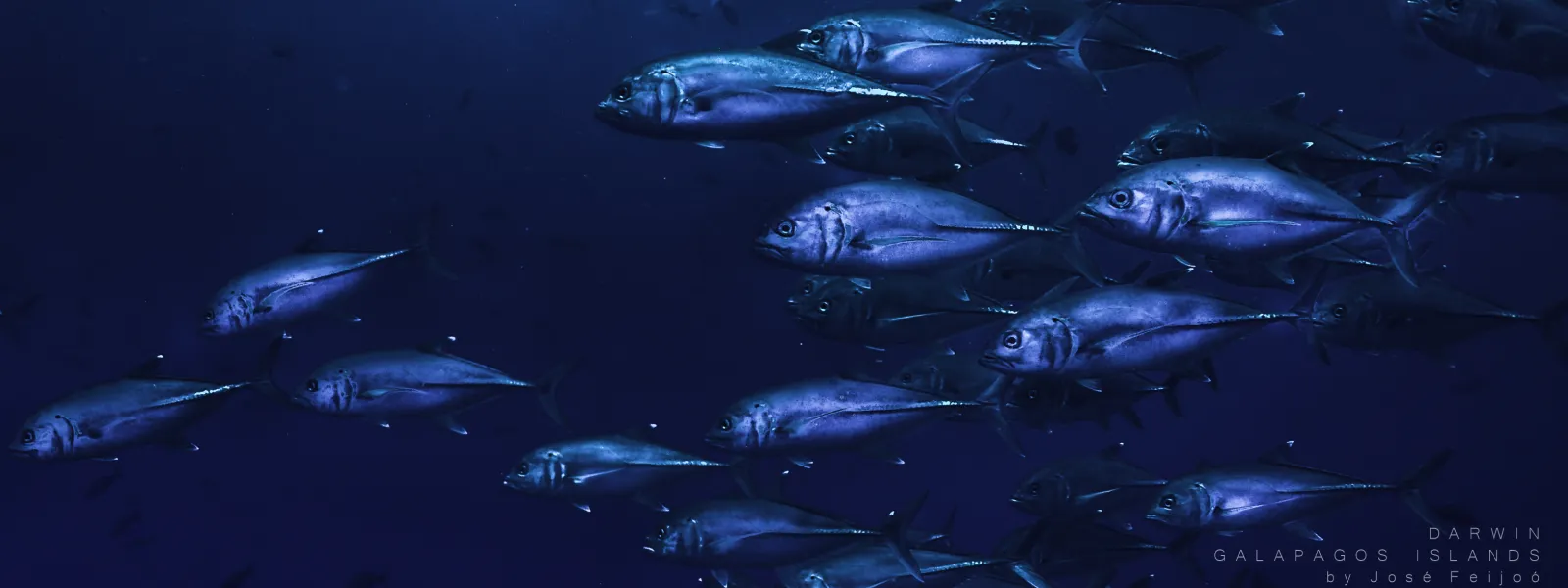
Publications
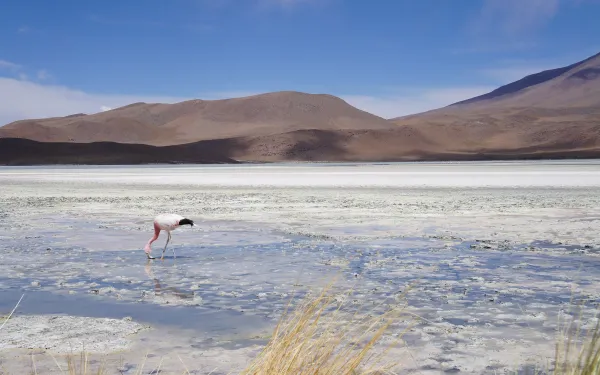
Transition minerals: value chains and cirularity from a Latin American perspective
The global push for renewable energy to reduce climate-aggravating emissions has revealed how the environmental and social costs of mineral extraction fall disproportionately on local communities and ecosystems. The rush for so-called “critical” minerals exacerbates the very crises it seeks to help solve, worsening ecological degradation and perpetuating socio-economic injustice in the Global South. The circular economy allows the development of new economic and governance models to overcome the linearity of the international trade system. From a Latin American perspective, the circular economy must incorporate ecological parameters to ensure the maintenance of ecosystem services and the value of raw materials, while respecting the human rights of those who depend on the ecosystems from which these raw materials are extracted. AIDA is a pioneering regional organization that uses the law and science to protect the right to a healthy environment in Latin America. Focused on strengthening the just energy transition, AIDA's work includes an emphasis on value chains and circular economy models from a Latin American perspective. The race for lithium from the perspective of place Andean wetlands are a series of highly biodiverse ecosystems that provide multiple ecosystem services. However, these ecosystems are highly fragile and are currently threatened by the climate crisis, water crisis, and mining pressures, particularly regarding lithium. The Gran Atacama, located in the high Andean wetlands of Chile, Bolivia and Argentina, is estimated to contain approximately 68 percent of global lithium reserves, in the form of brine. As such, the mining industry has renamed this region to focus on one mineral, calling it the “lithium triangle.” The reality is that the area is much more complex than just its minerals. In the Gran Atacama, local communities and indigenous peoples depend on the stability of the ecosystem for their cultural, social and economic well-being. Economic activities there are linked to agriculture, industrial employment, bureaucratic services, and tourism. Sixty percent of lithium deposits are in areas of medium, high and extremely high-water risk. At least 30 ongoing lithium mining projects in various stages of development have been identified throughout the Gran Atacama. Public opinion in these three countries has demonstrated significant concerns about the lithium mining industry and the sustainability of these activities, particularly in relation to a history of mismanagement of environmental liabilities in the past. A circular economy perspective is essential for sustainability The current climate crisis is linked to the linear nature of our current economic system and its assumption of infinite natural resources. The history of large-scale mining activities in the Global South exemplifies this perspective. The circular economy could offer a solution to create a more sustainable value chain for raw minerals and enable a just energy transition that benefits all regions of the world. However, the following points must be considered: The drivers and barriers for creating a circular economy within mining processes may vary from region to region. Building a global circular economy for lithium needs to encompass the material extraction stage more comprehensively, not only through industrial circularity activities, but also from an ecosystem and human rights perspective. The loss of natural capital in lithium-exporting countries is a major concern, not only because of material extraction, but also because of its impact on ecosystems. In Latin America, non-renewable natural capital represents 3.2 percent of total wealth, while natural capital represents 10.9 percent. Intensive extraction without recognizing environmental and human rights concerns depletes natural wealth, some of which is already used by local populations. A circular economy for raw materials must balance the extraction of minerals with the preservation of ecosystems. Economic mechanisms must be found to prevent the replacement of natural capital with technological capital, to create a truly circular economy. Tariff inequality for critical minerals, including lithium, is widespread and results in an uneven distribution of economic benefits along the value chain of raw minerals. Market rules impose low tariffs on critical raw materials, while high tariffs are applied to technology and specialized labor, neglecting the added value of natural resources. This results in lost potential to generate further profits in subsequent stages of the value chain. Economic mechanisms are needed to support ecosystem conservation, proper management and economic valuation of nature, and to address the inherent inequality and linearity of the current economic system. A circular economy proposal from territories of extraction The lithium value chain is transnational, and each region involved has different actions to take to achieve a global circular economy. Circularity in mining areas depends on the conservation of ecosystems that contain lithium and other minerals. Since raw materials are extracted from these ecosystems, our mission is to preserve them and plan the use of non-renewable resources from an ecological perspective, respecting biophysical limits and human rights. In this regard, from the perspective of the extractive regions, the proposal can be related to: Strengthening the circular economy perspective in and from extractive regions and increasing knowledge sharing with other regions, both in the global North and South. Expanding the concept of a global circular economy for lithium to include an ecosystem perspective in extraction planning, rather than focusing solely on a supply and demand perspective. Appropriate valuation of both non-renewable resources and the ecosystems in which they are located, through the exploration of environmental taxation mechanisms that could be integrated into the mining sector to: Create clear market signals about the value of natural and non-renewable resources and reduce the demand for intensive extraction of raw materials. Generate revenues to ensure a fair share of directly affected communities through benefit-sharing mechanisms and to facilitate increased investment in technologies to advance the circular economy faster and more efficiently. Ensuring timely and adequate compensation for contamination. Developing proposals for economic models that incorporate the ecosystem services and materials used or affected during lithium production. For example, implementing specific carbon pricing for mining activities and strengthening legal mechanisms based on the “producer responsibility” and “the polluter pays” principles.
Read more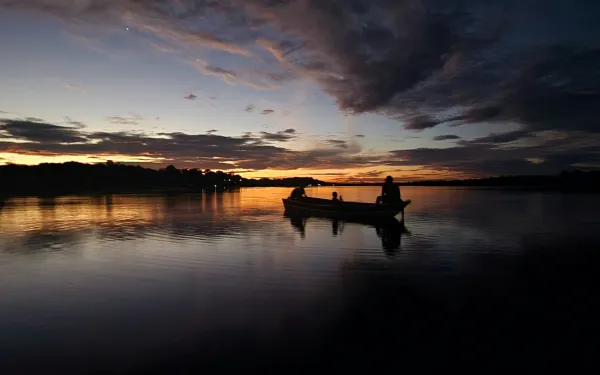
The Manaus Declaration on Human Rights in the Climate Emergency
Indigenous Peoples, local communities, Afrodescendants, tribal and rural communities, children and adolescents, women, LGBTQI+, non-governmental organizations, platforms, institutions, and individuals urge the Court and States to adopt minimum standards for the protection of human rights in the context of the climate emergency, as elaborated during the public hearings of the Advisory Opinion, particularly the one held in Manaus, Brazil, from May 25-29, where communities, peoples and civil society of the region met in an unprecedented judicial setting.We notice that the overall balance, after more than 30 years of international discussions regarding the climate emergency, is regrettable, as there is no evidence of an effective commitment by States to avoid greenhouse gas (GHG) emissions, to grant reparations to those who have suffered climate damage, and to ensure that changes in their internal laws and policies, including economic policies, are compatible with the average global temperature limit set in the Paris Agreement.We highlight that several international courts, including the Inter-American Court of Human Rights, have the historic opportunity to formally clarify the human rights obligations of States in the context of the climate emergency through its advisory function, and in that sense, to set robust standards for the protection of rights based on current international standards relating to the protection those populations that have been historically excluded and discriminated against, and that are significantly more vulnerable to the climate emergency. Read and download the declaration
Read more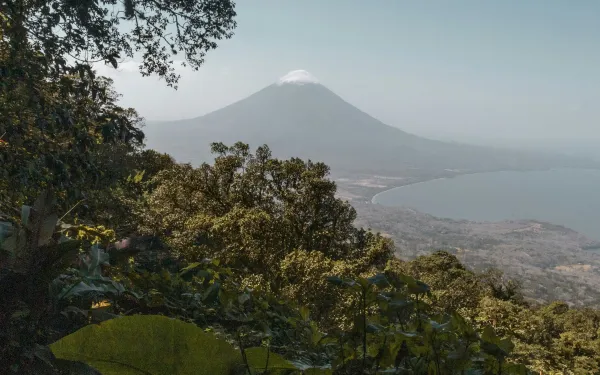
Leading participatory monitoring processes for Green Climate Fund financed projects
The Green Climate Fund (GCF), a multilateral climate fund under the United Nations Framework Convention on Climate Change (UNFCCC), allocates funding for projects and programs aimed at reducing greenhouse gas emissions and building resilience to climate change impacts in developing countries. To date, the GCF board has approved 243 projects worldwide, committing 13.5 billion USD in total. Notably, approximately 26% of these projects and programs target Latin America.This financial mechanism has become a lynchpin of the climate finance architecture, challenging conventional approaches to international projects. It is governed by a board with equal representation from developed and developing countries (UNFCCC designations); robust environmental and social policies rooted in human rights; an indigenous people’s policy, backed by an advisory group that interfaces with the Secretariat and the Board; a stated preference for maximal information disclosure; a seat for active observers representing civil society organizations; strong ties to the UNFCCC and the Paris Agreement; and an explicit mandate to include a gender perspective. In fact, all approved projects and programs are required to integrate a Gender Action Plan (GAP). In addition, the GCF is mandated by its own policies to facilitate stakeholder participation mechanisms. These mechanisms encompass representation from diverse sectors, including the private sector, civil society organizations, vulnerable groups, women, and indigenous peoples.Though implementation of these safeguards and progressive policies is far from perfect, their existence lays the groundwork for stronger future implementation. Civil society, including feminist movements and organizations, engage with the GCF as a climate finance mechanism that should continue to be strengthened. The explicit analysis and commitment mandated for each project regarding social and gender considerations not only facilitate engagement but also uphold accountability.In late 2022, partner organizations of the Global Alliance for Green and Gender Action (GAGGA), including the International Analog Forestry Network (IAFN), Asociación Interamericana para la Defensa del Ambiente (Interamerican Association for Environmental Defense, AIDA), Fondo Centroamericano de Mujeres (Central American Women’s Fund, FCAM), Fondo Tierra Viva (Tierra Viva Fund) and Women’s Environment and Development Organization (WEDO), collectively launched a pilot initiative. The project aimed to facilitate participatory monitoring of the implementation of the project FP089 Upscaling climate resilience measures in the dry corridor agroecosystems of El Salvador (RECLIMA). 3 RECLIMA was approved by the Board of Directors of the GCF during its 21st meeting (B.21) in 2018. For the fieldwork, an alliance was formed with Unidad Ecológica Salvadoreña (Salvadorean Ecological Unit, UNES), a local ecofeminist NGO advocating for environmental and gender justice in El Salvador.The main objective of this project was to pioneer a participatory monitoring process for a GCF-funded project, with specific emphasis on gender equality. Each participating organization approached this collaborative initiative with genuine curiosity, eager to explore its feasibility and potential impact. There was also a collective commitment to openly share information about the process, results, challenges, and lessons learned. This report aims to summarize the outcomes of this exercise, providing an overview of the RECLIMA project and highlighting the importance of gender equality and participatory monitoring within climate projects; as well as sharing primary findings and key recommendations, tailored to GCF Accredited and Executing Entities. Read and download the report
Read more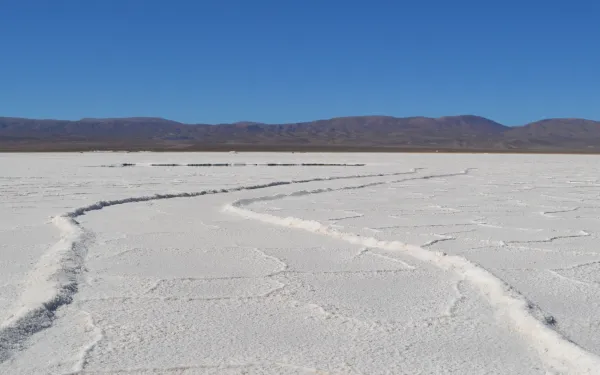
Lithium Fever: Indigenous Peoples’ Rights Under Attack in Jujuy, Argentina
International Fact-finding Mission Report (21-25 August 2023) Jujuy is one of the 23 autonomous provinces making up the federal state of the Argentine Republic. It is located in the north west of the country, bordering the Plurinational State of Bolivia and the Republic of Chile. According to the official census, it is one of the provinces with the highest percentage of indigenous population in the country.On 20 June 2023, the Jujuy Province approved the modification of 193 of the 212 articles of its Provincial Constitution,1 through a Constitutional Convention that was in session for less than a month.The constitutional reform was the subject of numerous and prolonged citizen protests. During and after its approval, different social sectors in Jujuy criticised the lack of citizen participation and the exclusion of indigenous peoples’ voices in the constitutional process. They also denounced provisions in the new Constitution, which severely restrict the right to protest and undermine the rights of indigenous peoples over their ancestral territories and water sources.Eight international civil society organisations with extensive experience in human rights and environmental rights carried out an international fact-finding mission to Jujuy from 21 to 25 August 2023. Members of the International Federation for Human Rights (FIDH),2 the Interamerican Association for Environmental Defense (AIDA), Brot für die Welt/Bread for the World, the Economic, Social and Cultural Rights Project (ProDESC), the Human Rights Law Centre (HRLC), the Centre for the Study of Law, Justice and Society (Dejusticia), Movement Law Lab (MLL) and the Global Network of Movement Lawyers (GNML) participated in this initiative.The objective of the international fact-finding mission was to document, through fieldwork and access to direct sources, potential violations of human and environmental rights that occurred in the context of the constitutional reform, including the repression and criminalisation of people who participated in and promoted protests against it. To this end, the mission interviewed civil society actors, representatives of indigenous peoples and provincial and national authorities. Meetings took place both in San Salvador de Jujuy, the provincial capital, and in rural communities located in the towns of La Quiaca, Salinas Grandes, Susques, Humahuaca, San Roque and Purmamarca.The international fact-finding mission acknowledges that the Provincial Government of Jujuy, as well as the National Government of the Argentine Republic, offered the necessary guarantees for the visit to take place and provided information on the human rights context, respecting the right to defend human rights. It is also grateful for the trust of the representatives and members of indigenous and rural communities and human rights and environmental defenders, who shared their testimonies with the mission. To all of them, we express our recognition and solidarity with their struggle for human rights.This report contains the main findings of the international mission, based on the field visit, the review of primary and secondary documentary sources and the processing of the information gathered during and after the visit to Jujuy, through interviews with more than one hundred people. Read and download the report
Read more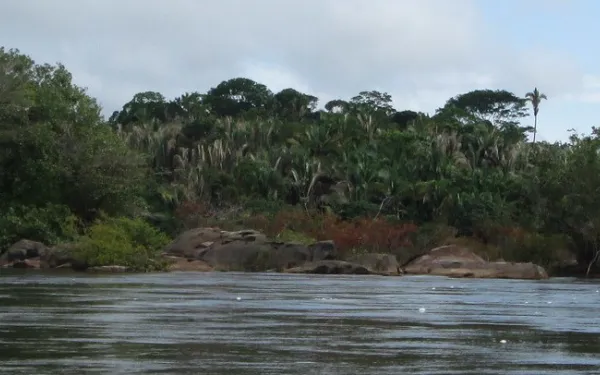
Unmasking Canada Rights Violations Across Latin America (Executive Summary)
In the 4th cycle of Canada’s Universal Periodic Review (UPR), more than 50 civil society organizations and communities impacted by Canadian business conduct in Latin America and the Caribbean presented three reports that reveal troubling findings.Regional Report: Reveals the status of 37 projects in 9 countries in the region, involving 34 Canadian companies and consortiums. Most of these projects are in the extractive sector (27 mining and 8 oil) and two renewable energy projects (1 hydroelectric, 1 wind). In all of them, human rights have been violated and serious environmental impacts have been reported, impacting Indigenous, Afro-descendant, peasant and fishing communities.Amazon Report: Measures the impact of Canadian companies in the Amazon basin of Brazil, Ecuador, Colombia, and Peru. The report analyzes 12 extractive projects that impact fragile ecosystems and Indigenous communities, demonstrating that Canadian companies systematically violate impacted communities’ human rights and threaten the environment in a region with the greatest biodiversity in the world, which is a strategic space to confront the climate crisis.Oil Report: Assessing Canadian business conduct in eight oil projects in Colombia, Ecuador and Peru, the report reveals how the lack of protection mechanisms, access to justice, and comprehensive redress for impacted peoples and communities, requires Canada to recognize the interconnection between human rights and the environment, and take concrete measures to address the negative impacts of Canadian companies. This is not the first time that Canada has been denounced before the United Nations Universal System for the improper behavior of its companies abroad. During its third UPR, Canada received six recommendations that, despite committing to implementation, evidence presented by civil society in this cycle demonstrates the persistence of non-compliance with its extraterritorial obligations and lack of adequate measures to fulfill the responsibility to regulate the conduct of its companies. View and download the Regional Report (in Spanish)View and download the Amazon ReportView and download the Oil Report (in Spanish)
Read more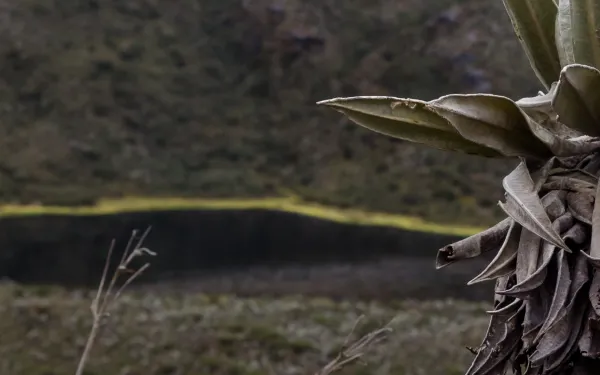
Report of the International Mission to Colombia: Stop investor-state dispute settlement (ISDS)
In May 2023, a delegation of 13 representatives from social and environmental justice organisations from eight countries in the Americas and Europe visited Colombia to share experiences of struggles against the global investment protection regime. The mission also went to learn firsthand about the peoples and ecosystems being threatened by corporate lawsuits, as well as the environmental, social and cultural harms that transnational investments have already caused, particularly in the departments of La Guajira and Santander.The visit came in response to the significant rise in claims that transnational firms have made against the country in recent years, as highlighted in the Declaration “Recover Colombian Sovereignty in Defense of Water, Life and Territories”, signed by more than 280 organisations from 30 countries as well as 54 Colombian members of Congress. In the last five years, Colombia has faced some of the highest number of arbitration claims in Latin America. In 2018 alone, Colombia received more claims than any other country in the world.Colombia’s pending claims currently total US$13.2 billion – equivalent to 13% of the nation’s budget for 2023 and nearly equal to what Colombia plans to spend on education this year.According to the State National Agency for Legal Defense, as of March 2023, 14 arbitration processes were underway with eight more in the pre-arbitration stage. Colombia’s pending claims currently total US$13.2 billion (52 trillion Colombian pesos as of August 2023), although in three cases the amount claimed is not public. This is equivalent to 13% of the nation’s budget for 2023 and nearly equal to what Colombia plans to spend on education this year.The bulk of investors that have brought arbitration cases are involved in the extractive industries, especially mining.We witnessed how this system enables corporate impunity and threatens the realisation and defence of Colombians’ fundamental human and environmental rights. We also observed how this system interferes with judicial independence, environmental regulation, and national sovereignty. Read and download the report
Read more
The Transformative Water Pact
In March 2023, world leaders and stakeholders across sectors will gather in New York for the UN Water Conference, dedicated to address the global water crisis. From countless experiences of people around the globe, and supported by substantial scientific evidence, it is obvious that major changes are needed in the way we share and care for water. In the decades since the last UN Water Conference in 1977, water sources have been further exploited and polluted for the economic gains of a few. As a result, ecosystems have deteriorated and the majority of the world’s people have been left with too little and unsafe water to rely on.The Transformative Water Pact (TWP) was launched at the 2023 Conference and has been developed in response to the continued exploitation of nature, neglect of human rights and the extreme power-imbalances that characterize contemporary water governance throughout the world. It details an alternative vision of water governance based on the tenets of environmental justice, equality and care. The TWP spans two sections of key principles and a framework for action, that provide anchor-points and strategic priorities to guide decision-making for transformative change in water governance.The TWP was initiated by the Dutch environmental justice organization Both ENDS and the international water knowledge institute IHE-Delft. It was developed and authored by a diverse group of 40+ environmental justice advocates from civil society and academia, notably from the Global South, who work extensively on water-related issues throughout the world. It’s content was defined through a process of online round-tables and writing from December 2022 to February 2023. The TWP is a living document that can serve as a basis for further discussion and refinement.The TWP can be endorsed by any actor that supports the transformative principals and is committed to implementing the framework of action within their own area of expertise and sphere of influence, including Non Governmental Organizations (NGOs), policy-makers, academics, private sector actors, community groups and governmental organizations. Download the document
Read more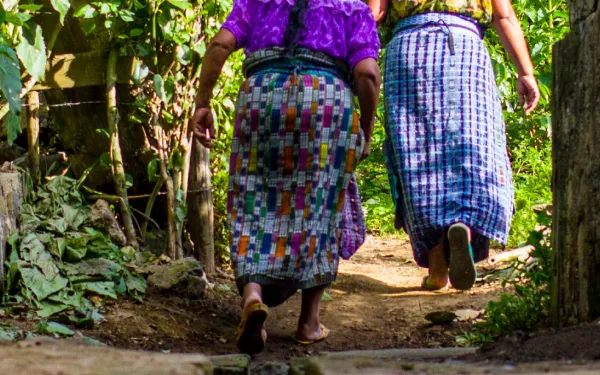
Open Letter from Civil Society Organizations to the President of the Inter-American Development Bank
The undersigned group of civil society organizations greet you as you begin your term as President of the Inter-American Development Bank. We extend to you our best wishes as you assume this task of great responsibility for the people of Latin America and the Caribbean.We take this opportunity to introduce ourselves and express our willingness to continue contributing to the Bank's actions pursuing the region's development. Since 2017, our organizations have been monitoring and making recommendations on the IDB policies and projects, in partnership with local communities and populations. In particular, we promote the Bank’s establishment of better social and environmental policies and practices, as well as adequate and transparent spaces for participation that allow improving the IDB's link and interaction with civil society. To mention just a few examples, we highlight our contributions to the Environmental and Social Policy Framework (ESPF), to the updates of the MICI policy and in the accompaniment of specific cases, and in the revision process of the Access to Information Policy and in the dialogues on the IDB-Amazon Initiative.In conjunction, we are permanently monitoring the Bank's policies and investments throughout the region, including in projects involved in the response to and recovery from the Covid pandemic and many others.We consider it essential that the Bank strengthen its practices and operations, facilitating the promotion and respect for human rights, with special attention paid to the needs of communities and indigenous peoples who are at the forefront in the defense of nature, as well as the protection of key ecosystems in the fight against climate change.Given the relevance of public participation in promoting full development, we reiterate our request to the Bank to generate constructive and lasting participation mechanisms. In particular, we request that the space for dialogue with civil society be reopened in the framework of the next IDB Annual Meetings. This space was a traditional practice that was interrupted in 2014 and has not been resumed to date.We understand that a space for IDB articulation with civil society (social organizations and movements, Indigenous groups, and others who are affected) is not only a good practice that other multilateral agencies are already implementing, but would also contribute to advance the objectives of your administration. As stated in your inaugural speech last January, you stressed your desire to "seize all opportunities for dialogue" and collaborate with different actors to address the most pressing problems of our region.Thus, your administration has an historic opportunity to generate greater openness towards civil society organizations and communities potentially affected by Bank-financed operations. We believe that this demand can no longer be postponed, and that this long-standing claim must be addressed in order to strengthen the work together with the peoples of the region.We remain at your disposal to discuss the points raised in this letter and other matters of common interest at your convenience. Kind regards, Accountability CounselAMATE El SalvadorArticulación Salvadoreña de Sociedad Salvadoreña de Sociedad Civil para la Incidencia en las Instituciones Financieras Internacionales (ASIFI)Asociación Ambiente y Sociedad (Environment and Society Association)Interamerican Association for the Defense of the Environment (AIDA)International Accountability ProjectBank Information CenterCenter for International Environmental Law (CIEL)Coalition for Human Rights In DevelopmentCohesión Comunitaria e Innovación Social A.C. (Mexico)Conectas Direitos HumanosDerecho, Ambiente y Recursos Naturales (DAR, Perú)Ecoa - Ecology and ActionFoundation for the Development of Sustainable Policies (Fundeps)CAUCE Foundation: Environmental Culture - Causa Ecologista (Argentina)Gender ActionInternational RiversMesa de Discapacidad y Derechos (Perú)International Platform against ImpunityProtection International MesoamericaSociedad y Discapacidad - SODIS (Perú)Sustentarse (Chile)Wetlands International / Fundacion Humedales (Argentina) Read and download the letter
Read more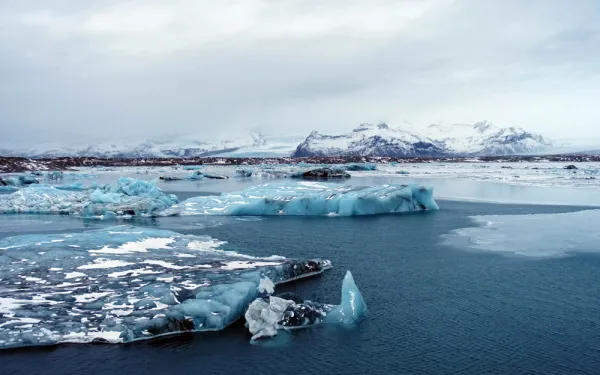
Governments of the world: Climate action is a legal duty
Climate action is a legal duty. After decades of empty promises, it is time for real action and accountability.Climate change is here now. Ecosystems are collapsing at an unprecedented rate. Vast regions of the world are becoming uninhabitable. Billions of people are facing the prospect of a dangerous and uncertain future. Extreme weather events have wreaked havoc across every continent this year alone. The “window of opportunity to secure a liveable and sustainable future for all” is closing fast.For decades, you have pledged to address the climate crisis. In successive treaties and decisions, you promised to slash greenhouse gas emissions. Just last year in Glasgow, you reaffirmed your commitment to limit global average temperature increase to 1.5°C and to ramp up mitigation ambition within the year. Yet countries’ latest global mitigation commitments show that we are completely off track. So far the vast majority of countries have not delivered on their commitment to strengthen their targets this year.We are on the precipice of the most serious intergenerational violation of human rights in history. But affected communities and those who stand with them are not giving up.We – lawyers and activists from across the globe – are standing with frontline communities to challenge your inadequate climate action. We have filed over 80 cases around the world to compel you to ramp-up your climate ambition: from the Netherlands to Nepal; from Canada to Colombia, from Belgium to Brazil, from Norway to New Zealand, from South Africa to South Korea.The law is on our side. Courts in dozens of countries have already recognized that you have a legal duty to address the climate crisis, and that this requires you to take more ambitious climate action. Cases have led to the adoption of new climate laws, stronger mitigation targets, and the closure of coal-fired power plants. The Intergovernmental Panel on Climate Change (IPCC) itself has recognised that climate litigation has the power to shape “the outcome and ambition of climate governance” towards aligning government action to best available science.COP27 is an opportunity for you to change course: to minimize the extent of suffering and human rights violations caused by your failure to address the crisis, and to live up to your legal obligations under domestic and international law.Governments of the world: your delay is costing lives. Strong action is needed now to protect people and the planet.If you continue to fail us, we will continue to turn to the courts to demand accountability.Signatories:Alana (Brazil), AIDA (Latin America and the Caribbean), Aurora (Sweden), The Australian Climate Case (Australia), Grata Fund (Australia), Phi Finney McDonald (Australia), Center for Environmental Rights (South Africa), Natural Justice (South Africa), Client Earth (Global), Climate Action Network Europe (Europe), Climate Case Ireland (Ireland), Ecojustice (Canada), Europäische Klimaklage (Austria), Germanwatch (Germany), Giudizio Universale (Italy), Rete Legalità per il Clima (Italy), A Sud (Italy), Global Legal Action Network (Global), Klimaatzak (Belgium), Klimatická (Czech Republic), Lawyers for Climate Action NZ (New Zealand), Lee Salmon Long (New Zealand), Notre Affaire à Tous (France), Adv. Padam Shrestha (Nepal), Plan B (UK), Protect the Planet (Germany), Russian Climate Case (Russia), Urgenda (Netherlands), Youth4ClimateAction (South Korea). Read and download the letter
Read more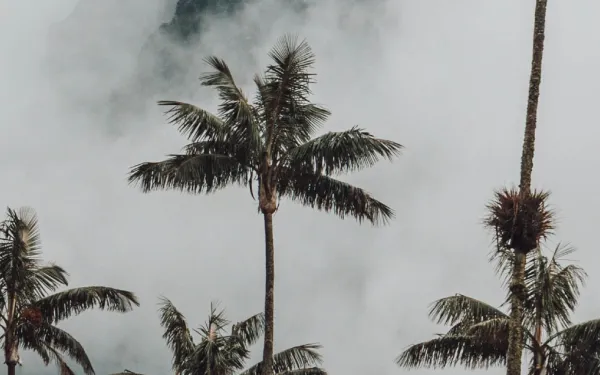
Environmental responsibility through supply chains
This report emphasizes the importance of binding legislation for companies to comply with environmental aspects as well as human rights throughout their supply chains.The document reviews environmental impact assessments as an instrument of due diligence and corporate responsibility in their supply chains. It examines the independent monitoring of impacts of business operations, and reflects on environmental guarantees and human rights for the legislative processes of due diligence. Download the publication
Read more